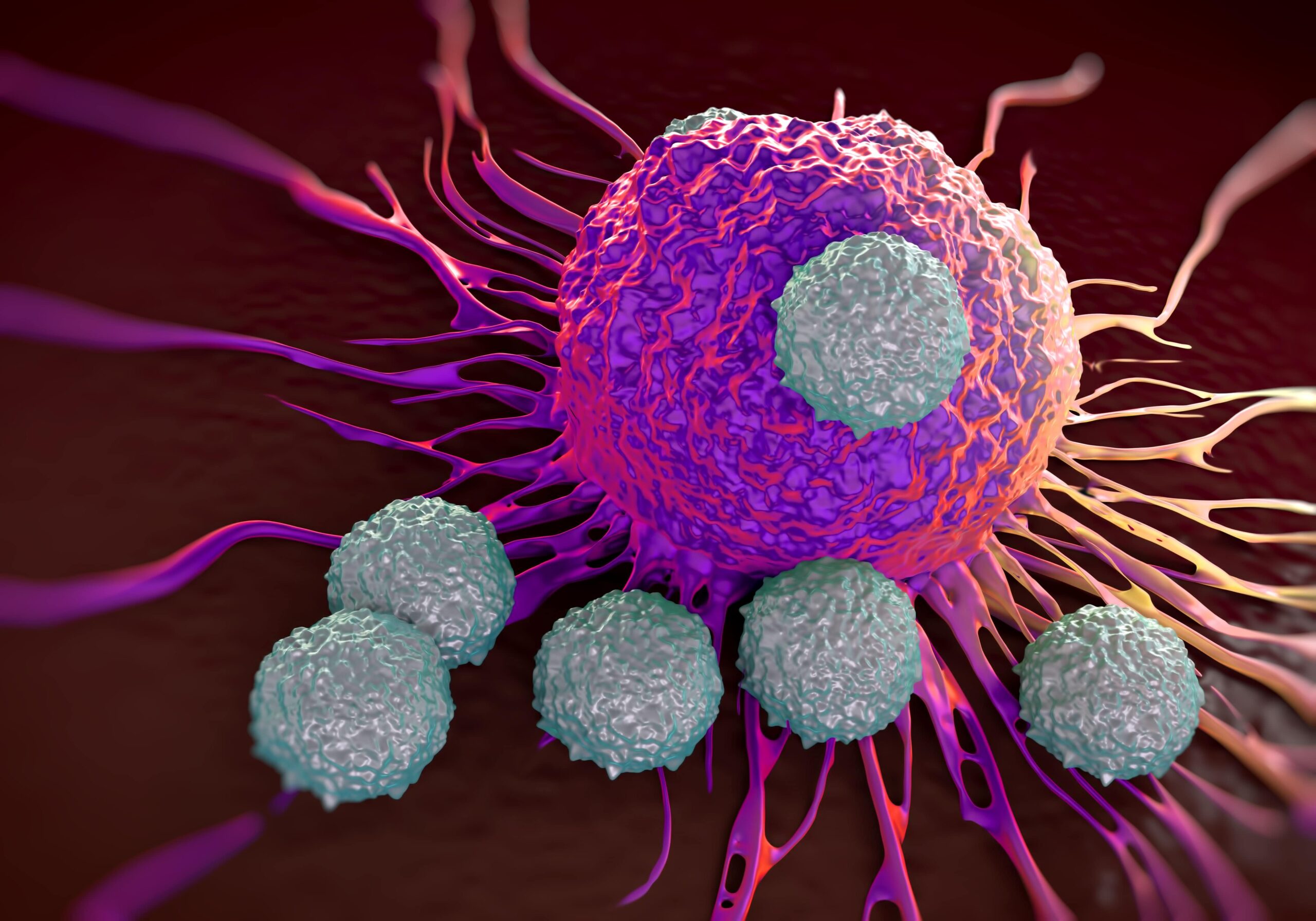Picture your GPS system of choice — Google Maps, Apple Maps, and the like. You plug in a location, follow the directions, and arrive at your destination as efficiently as possible. Now, picture that technology used inside the human body, helping cancer-fighting immune cells find their targets. Led by medical biotechnologist Timothy Jenkins, scientists at the Technical University of Denmark in Lyngby are leveraging this approach in the fight against cancer, developing an AI-centered molecular navigation system to tackle cancer at its source. Below, we’ve outlined the research, which was published July 24 in Science.
AI-Derived Proteins Create a “GPS” for the Fight Against Cancer
Earlier this year, Jenkins’ team successfully devised AI-designed proteins that could lead to improved antivenoms for snakebites. Now, the researchers have built on these same AI systems to fight cancer.
The team began by evaluating immune cells called T cells, which autonomously recognize specific threats like viruses or tumor cells. These cells have incredibly powerful immune capabilities, directly killing cancerous cells while also activating surrounding immune cells to produce a more robust response to the threat. The problem: As noted in Science News, T cells “sometimes have trouble recognizing the enemy” — hence the need for a GPS system to point them in the right direction.
Using their previously published computational protein design technologies, the team used existing AI tools to genetically engineer proteins. The proteins were meant to accompany T cells on their journey through the human body, serving as a “GPS” to guide the cells to their cancer target.
Using AI to Guide Wayward T Cells
To design the custom proteins, the researchers relied on several existing AI tools. First, the team inputted the structure of the cancer target into RFdiffusion, a generative model for protein design. The model proposed protein shapes that could fit the target. Once the team identified their desired shape, a second AI model suggested strings of amino acids that would likely form the proposed shapes. Finally, a third AI model conducted quality control, checking the work of Jenkins’ team. This model narrowed down protein designs until the team was able to select one promising candidate: a protein that demonstrated the ability to direct human T cells to harmful melanoma cells in a lab setting.
This AI approach is promising largely because of its speed. Current methods involve manually hunting through human cells to identify T cell receptors (TCRs). Using AI, the team generated promising protein designs in a matter of days and tested them in just a few weeks.
_____
For now, the approach is “very much a proof-of-concept,” says Jenkins. But the work demonstrates the power of AI models for synthetic protein design, adding to previous AI-related developments in cancer care. These models process massive amounts of data, identify patterns in tiny human cells, and conduct other crucial analyses that could take the fight against cancer to new heights.
Did you enjoy this blog post? Check out our other blog posts as well as related topics on our Webinar page.
QPS is a GLP- and GCP-compliant contract research organization (CRO) delivering the highest grade of discovery, preclinical, and clinical drug research development services. Since 1995, it has grown from a tiny bioanalysis shop to a full-service CRO with 1,200+ employees in the US, Europe, Asia, India and Australia. Today, QPS offers expanded pharmaceutical contract R&D services with special expertise in pharmacology, DMPK, toxicology, bioanalysis, translational medicine, cell therapy (including PBMCs, leukopaks and cell therapy products), clinical trial units and clinical research services. An award-winning leader focused on bioanalytics and clinical trials, QPS is known for proven quality standards, technical expertise, a flexible approach to research, client satisfaction and turnkey laboratories and facilities. Through continual enhancements in capacities and resources, QPS stands tall in its commitment to delivering superior quality, skilled performance and trusted service to its valued customers. For more information, visit www.qps.comor email info@qps.com.





